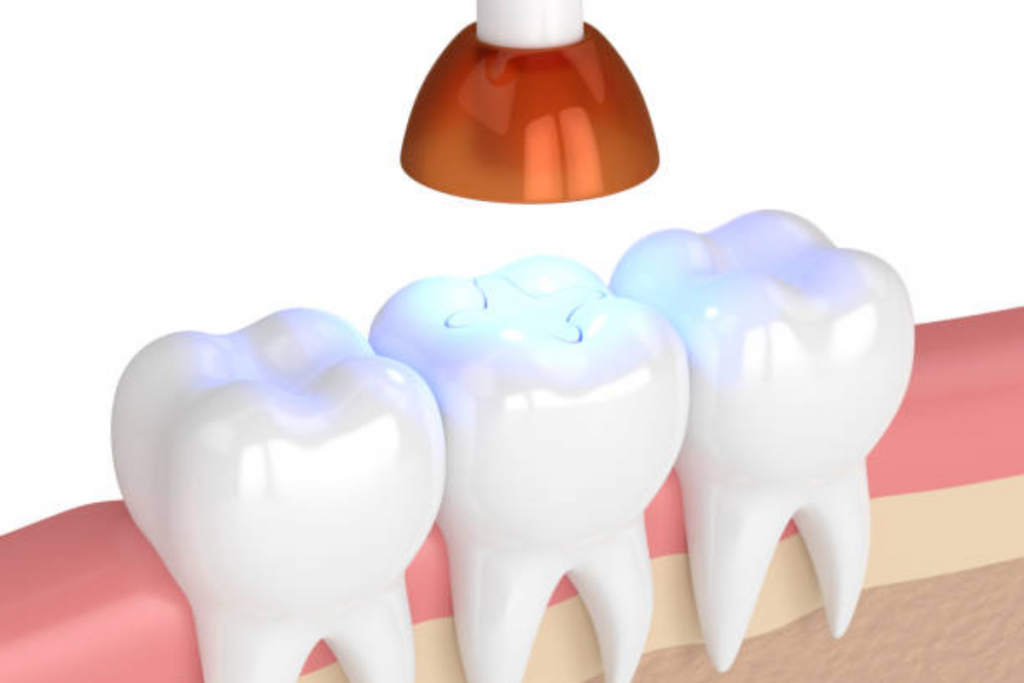Tooth restoration after decay or damage often uses composite fillings as a standard solution. After receiving your new filling, you probably wonder about the duration of post-procedure discomfort. The knowledge of typical post-filling reactions will help you feel better about your situation. This article explains what normal reactions are and which symptoms require dental attention for composite fillings in Lethbridge.
What to Expect After a Composite Filling
It is normal to feel mild discomfort after a filling. Below are some of the sensations you can expect:
- Tooth Sensitivity: Sensitive to hot, cold, or sweet foods for a short time.
- Mild Bite Sensitivity: Your bite will feel a little awkward until your mouth gets used to it.
- Soreness at the Injection Site: The area where the anesthetic was injected can be sore for a few hours.
These symptoms will typically resolve within a few days as your tooth acclimates to the new filling. If the pain increases or persists, though, it could be a sign of a problem that should be addressed.
How Long Should a Tooth Hurt After a Composite Filling?
Temporary pain should occur after a filling procedure. The majority of people experience relief from their dental issues within several days, yet some patients experience mild discomfort, which can extend to two weeks.
Your tooth sensitivity beyond two weeks indicates one of the following conditions:
- The tooth and nerves require time to adjust to the filling during an adaptation period.
- The dental filling extends too high above the tooth surface, thus creating pressure during biting.
- The tooth nerve requires additional time to heal when decay reaches deep levels.
Severe or ongoing dental pain requires a visit to confirm proper healing of all dental issues.
How Long Does It Take for a Composite Filling to Feel Normal?
For most patients, a composite filling seems normal within two to four weeks. What is expected here during this period:
- First few days after placement: You may experience slight discomfort, particularly with hot or cold food.
- First week after placement: Sensitivity should gradually improve, and biting should feel normal.
- Two weeks to four weeks after placement: Your tooth should feel fully adjusted, and sensitivity should nearly go away.
If there is still a concern after the one month, it is a good idea to call your Lethbridge dentist for an evaluation.
How Do You Know If a Filing Hit a Nerve?
In some cases, a filling may be placed too close to the nerve, leading to prolonged pain. Signs that a filling may have irritated or damaged a nerve include:
- Sharp, lingering pain when eating or drinking hot or cold items.
- Persistent throbbing pain that doesn’t improve over time.
- Swelling or discomfort around the affected tooth.
- Pain that radiates to other areas of the mouth or jaw.
If you suspect that your filling has affected a nerve, your dentist in Lethbridge may recommend further treatment, such as an adjustment or, in rare cases, a root canal.
Tips to Ease Discomfort After a Composite Filling
While some pain and sensitivity are normal, there are simple ways to manage it at home:
- Use a sensitivity toothpaste: Products like Sensodyne can help reduce sensitivity.
- Avoid extreme temperatures: Try lukewarm foods and drinks instead of very hot or cold items.
- Chew on the opposite side: Give your newly filled tooth time to adjust.
- Take over-the-counter pain relievers: Ibuprofen or acetaminophen can help with discomfort.
- Follow your dentist’s instructions: Proper aftercare ensures faster healing.
When to Seek Professional Help
At Absolute Dental, our skilled team is here to help you with any concerns related to composite fillings. If you’re experiencing persistent discomfort, book an appointment with a trusted dentist near you today!
